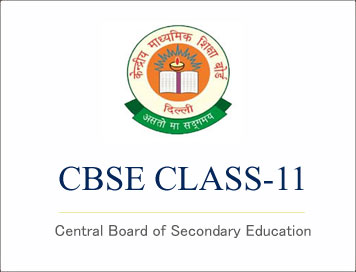CBSE Class-11 Syllabus 2019-20 (Knowledge traditions and practices of India)
Disclaimer: This website is NOT associated with CBSE, for official website of CBSE visit - www.cbse.gov.in
CBSE Class-11 Syllabus 2019-20 (Knowledge traditions and practices of India)
Rationale :
The "Knowledge Traditions and Practices of India" has been introduced as an elective subject at the Senior Secondary level w.e.f. 2012-2013 in class XI as a pilot and introduced in all schools w.e.f. 2013 in classes XI and XII. After ten years of general education, students branch out at the beginning of this stage and are exposed to the rigours of the various disciplines for the first time. This is the stage when they are made to start reflecting over their future life and decide a career. At this point, they also become aware of certain knowledge traditions and practices of India that are being followed in their families and society around them but few students get an opportunity to lay hands on the vast treasure of knowledge that lies hidden in the form of literature or books.
This course aims at providing a broad overview of Indian thought in a multidisciplinary and interdisciplinary mode. It would not seek to impart masses of data, but would highlight concepts and major achievements while engaging the student with a sense of exploration and discovery. It would be an introductory course so that students who take this course are prepared for a related field in higher studies in the universities. The course will cultivate critical appreciation of the thought content and provide insights relevant for promoting cognitive ability, health and well-being, good governance, aesthetic appreciation, right values and appropriate worldview. The course will therefore comprehensively deal with all-round personality development of the students and increase their knowledge about their country.
Concept of the Course:
The knowledge traditions of India are continuous and cumulative. They are textual and exegetical traditions in different areas of thought and experience: philosophy, medicine, grammar, architecture, geography, literary theory, polity and political economy, logic, astronomy and mathematics, military science, metallurgy, agriculture, mining and gemmology, and shipbuilding, among others. Concepts and technical vocabularies of these traditions are still a part of the thinking and the languages of modern India.
The tradition is also non-egocentric. The 5th-century philosopher of language, Bhartrihari, states in his Vakyapadiya, a cardinal principle of knowledge constitution: "The intellect acquires critical acumen by familiarity with different traditions. How much does one really understand by merely following one's own reasoning only?" (Bhartrihari, Vakyapadiya, II.484). The traditions are therefore, intrinsically polycentric; Indian thinkers have constantly engaged in internal debate and dialogue and have also interacted with traditions outside India.
Aims and Objectives of the course:
Students will be able to:
- get familiar with Indian thought in different disciplines.
- get familiar with major Indian thinkers in different disciplines.
- get familiar with the primary texts of Indian thought through an organized study of short extracts in translation of those texts.
- develop a better appreciation and understanding of not only the Knowledge Traditions and Practices of India but also of many contemporary questions and issues that they handle in their course work in related disciplines.
- enhance self awareness and self-esteem.
Specific aims:
Students will be able to:
- get familiar with the nature of Indian texts.
- read primary texts from various sources and will be able to collect information and develop their critical abilities.
- relate the knowledge to present context.
- develop positive attitude towards Indian thoughts and traditions.
- compare and contrast views given in the units and develop interest in the authentic texts.
- internalise the given knowledge and pursue it further in their courses of studies by gathering more information about thinkers and texts.
- interpret and analyse texts of different kinds and express it in their own language.
- understand the contribution of Indian mind in various fields.
- relate ideas of various disciplines with western thought they are otherwise introduced to in their course work.
- develop a wider understanding of how all knowledge is ultimately interrelated.
- read and know the history of Indian literatures.
- pursue further study in related fields.
- paraphrase the ideas of primary text in English or Hindi.
|
Sr no |
Section AreasofAssessment |
No of Periods |
Marks |
|
A |
Reading Skills Two passages fromthetextbook |
60 |
20 |
|
B |
Analytical Skills Two passages for comparing/contrasting relating to thepresenttime. One out of three long answertypequestions |
60 |
25 |
|
C |
Thinking Skills Five out of six shortanswerquestions Ten objective type questions based on MultipleChoiceAnswers |
60 |
25 |
|
D |
Research based Project/Portfolio Assessment +vivavoice |
40 |
20+10=30 |
Click Here To Download Full Syllabus
Courtesy: CBSE
